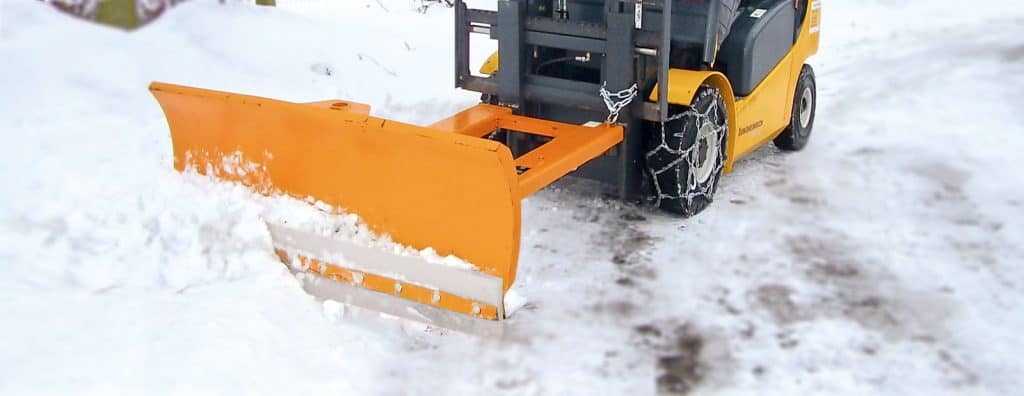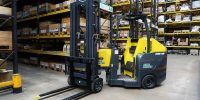Preparing your forklift properly for winter can make the difference between safe use and a serious incident.
We may be in mid January but there are still a few more winter months to contend with. Safe forklift operation always relies on two things: ensuring the forklift is in good condition and is appropriate for the job and ensuring your forklift operator is properly trained and fully attentive.
Here we explore the steps you should take in the lead up to winter in order to ensure your forklift is safe as the weather worsens.
Operator training
So that your business operations can continue unimpeded in the winter months, you will need to make sure your staff are attentive to the change in environment and adapt their working practices to meet these conditions. It is important to demonstrate the need for additional caution when there is cold weather, snow, ice, wet conditions and limited visibility.
Operator equipment
As the weather gets colder you will need to provide your operators with better and more appropriate equipment with which to continue working comfortably. Protecting them from the weather will help to keep their concentration levels up and ensure they are able to carry out safe operating practices. Visibility will also be poorer in bad weather conditions, so all of your staff should be in clothing that is highly visible and reflective.
Forklift preparation
To prepare the forklift itself for the winter conditions you should invest in a high-quality forklift cover to protect it from the elements. Gritting the yard will also ensure there is no ice that could cause the forklift to lose traction. Pneumatic tyres can also help to improve grip and appropriate tyre chains, or studs can also help to keep your forklift on track.

Forklift operation
In the winter you should be doubly cautious about checking the forklift’s condition before you begin to operate it. Carry out all of the usual checks for fuel, de-icer and oil, and ensure that you give the forklift enough time to warm up before use. This will take longer than usual in the winter as you’re starting from lower temperatures.
While the forklift is in use you should be especially vigilant in anticipation of others having their senses impeded. In wind, rain and snow, pedestrians and other operatives can be distracted and can have their hearing and vision impeded. The forklift operator should slow down and make sure they are always able to clearly see where they are going.
Useful Forklift Attachments
To use your forklift for any non-standard practices like clearing snow in the winter, it is vital that you invest in the correct attachments. A snowplough will help to keep the yard clear and safe to work in, but a makeshift plough can easily become snagged and could potentially cause the forklift to topple. If you are adding attachments to your forklift, make sure they are suitable for the job at hand and are designed for use on the correct model of forklift.
Forklift Maintenance
Forklift maintenance is important all year round, but you should be especially attentive to this in the winter. Ensure the forklifts are stored in the dry and make sure the hydraulic fluids you are using are high-quality, so they do not freeze or gel.


